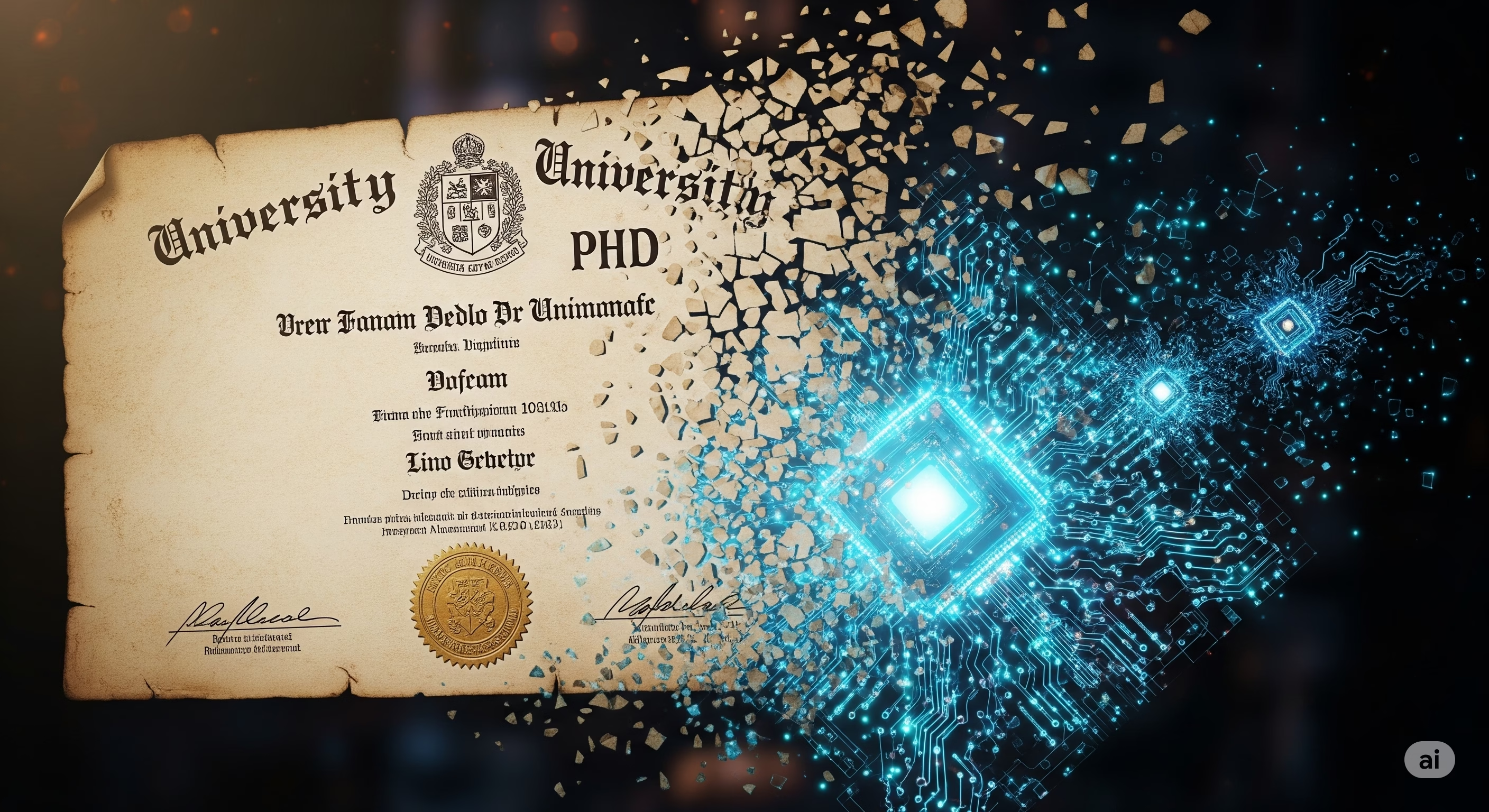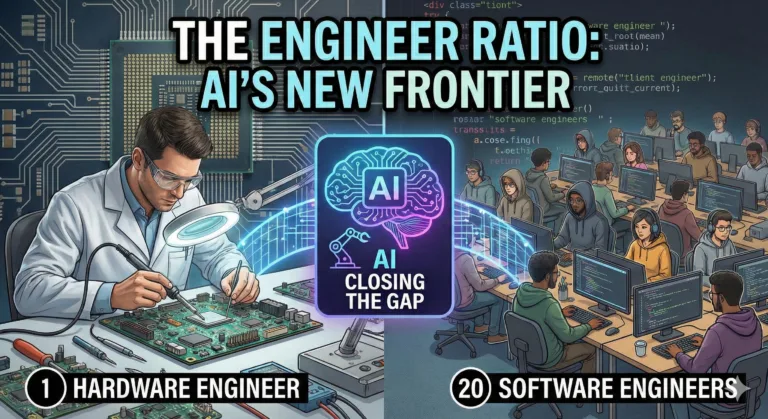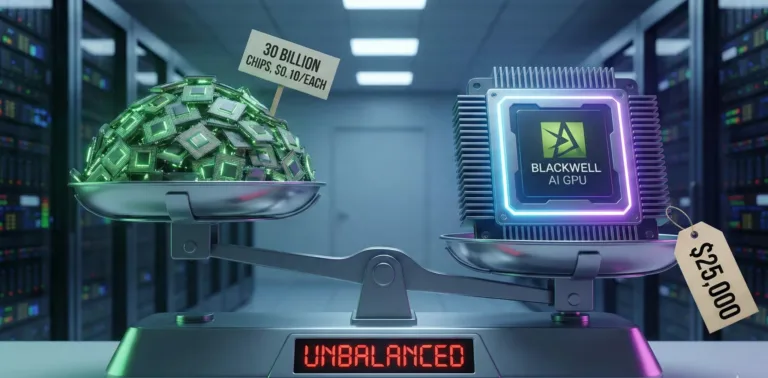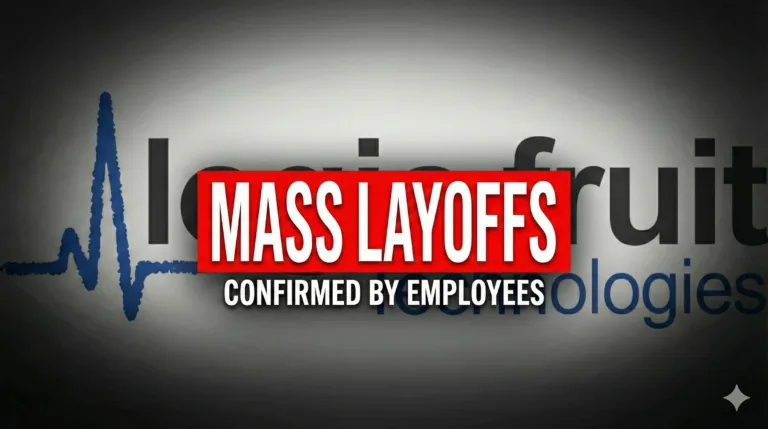For decades, a PhD has been the gold standard for those seeking authority in research and technology. It symbolized credibility, depth, and expertise. But when it comes to a PhD in AI era, the ground is shifting fast.
In today’s AI era, that long-held status is being questioned. Jad Tarifi, the former head of Google’s first generative AI team, has argued that by the time someone completes a PhD, the technology landscape may have already shifted, leaving the effort outdated.
Why Tarifi’s View Matters in 2025 ?
A typical PhD can take five to six years to complete. In contrast, the pace of AI development has accelerated to 12–18 month cycles for major breakthroughs. Between 2022 and 2025 alone, large language models evolved from GPT-3.5 to GPT-5, Anthropic released multiple iterations of Claude, and Google advanced from PaLM to Gemini. What looks cutting-edge at the start of a PhD can appear outdated by the time a dissertation is submitted.
This is the gap that Jad Tarifi is highlighting. With nearly a decade at Google and as the founder of Integral AI, he has seen firsthand how industry learning often outpaces academia. For students hoping to ride the AI wave into lucrative opportunities, waiting years in research programs may be a disadvantage.
Yet, not all domains move at the same pace. Fields like AI safety, neuromorphic chip design, and AI for biology demand long-term inquiry and may benefit from the rigor of PhD-level work. Tarifi’s argument, then, is less about dismissing research altogether and more about warning students against pursuing a doctorate solely because of today’s AI hype.
Industry vs. Academia in AI era: The Trade-Off
The divide between academia and industry in AI has never been sharper. On one side, universities still emphasize rigor, theory, and long-term exploration. On the other, companies are deploying models, iterating in months, and capturing market share in real time.
- Speed of Progress: While a PhD takes 5–6 years, industry models now refresh every 12–18 months. OpenAI moved from GPT-3.5 to GPT-5 in under three years, while Google’s Gemini family advanced within shorter cycles. This mismatch means doctoral students risk completing research that already looks dated.
- Resources: Industry players have unmatched access to compute power and proprietary datasets. By contrast, many universities struggle with limited GPU availability, slowing down experiments and research.
- Visibility and Impact: Contributions made in open-source projects or startup labs often gain traction faster than academic papers. Meta’s Llama releases created a global developer ecosystem in months — something academia alone could not replicate.
- Career Outcomes: While a PhD can open doors to tenure-track positions or specialized research labs, industry often rewards agility. Engineers with three years of applied AI experience may be more employable than fresh PhD graduates without product exposure.
Yet academia is not irrelevant. It remains the incubator for fundamental breakthroughs — from transformer architectures to neuromorphic computing principles — many of which originated in research labs. The question is whether students today want to prioritize discovery for the long term or impact in the short term.
So, Is a PhD in AI era Still Worth It?
Tarifi’s comments resonate with a growing sentiment in 2025: the AI race is not waiting for academia. For students chasing immediate relevance or industry careers, the opportunity cost of a five-year PhD is hard to ignore. Practical skills, open-source contributions, and hands-on roles in startups or corporate labs often carry more weight than academic titles.
Still, dismissing PhDs entirely would be short-sighted. Areas like AI safety, computational biology, or next-generation chip design require patience and the kind of deep exploration that only a PhD can provide. These fields are less about racing to the next model and more about building foundations that will shape AI’s long-term trajectory.
The answer, then, is not universal. For those drawn to research for its own sake, a PhD remains meaningful. But for many students entering the AI era, Tarifi’s advice is clear: the fastest way to contribute may not be through academia, but through the labs, startups, and industries driving AI forward today.
Discover more from WireUnwired Research
Subscribe to get the latest posts sent to your email.




